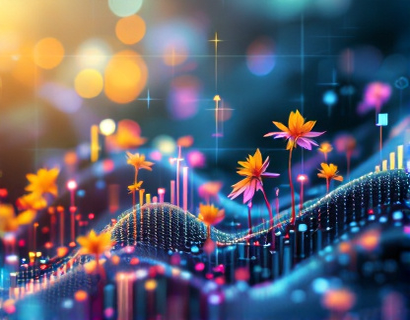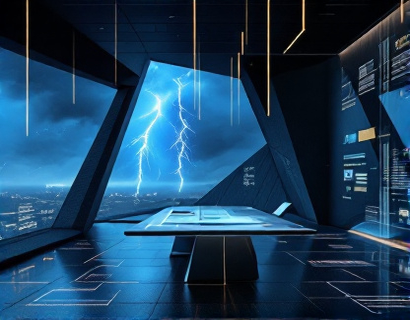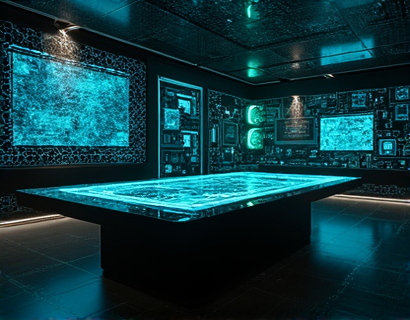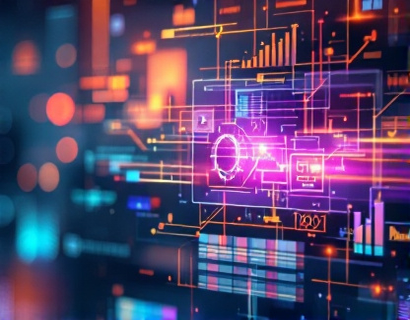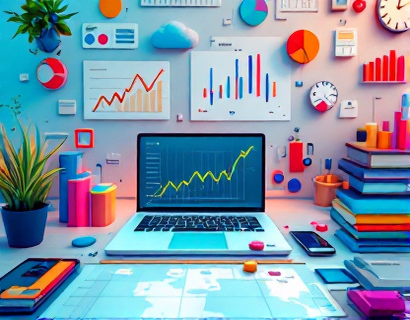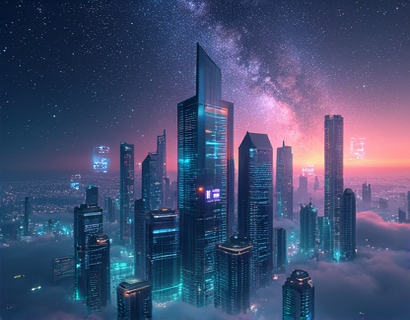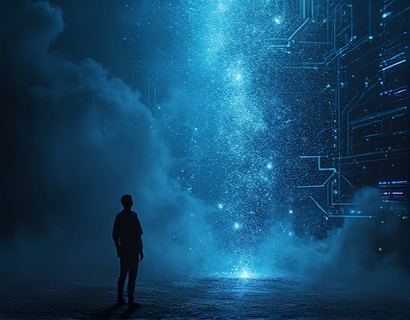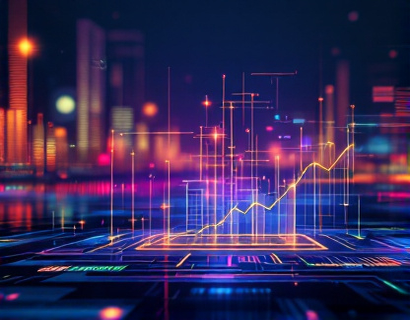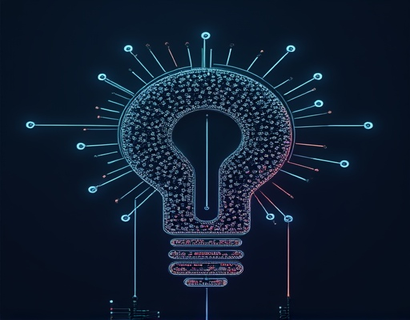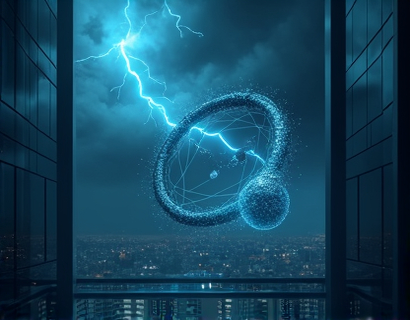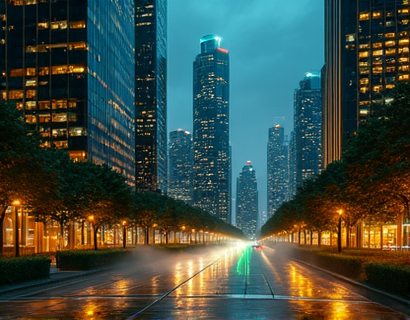Unlocking Musical Creativity with Cutting-Edge AI Tools
The landscape of music creation is undergoing a revolutionary transformation, driven by the integration of advanced AI tools. These innovative technologies are empowering artists to compose and produce music like never before, breaking down barriers and unlocking new levels of creativity and sound quality. This article delves into the ways AI is reshaping the music production process, offering insights and tools that can help both seasoned professionals and emerging talent to elevate their craft.
The Evolution of Music Production
Music production has come a long way since the days of analog recording studios. The advent of digital technology brought about significant changes, from digital audio workstations (DAWs) to software synthesizers and virtual instruments. However, the integration of AI into music production is taking this evolution to a whole new level. AI tools are not just assisting in the production process; they are becoming integral components that enhance creativity, efficiency, and the overall quality of the music created.
AI in Composition
One of the most exciting applications of AI in music is in the composition phase. AI algorithms can analyze vast amounts of musical data, identifying patterns and structures that can inspire new ideas. For instance, AI can generate melodies, harmonies, and even entire song structures based on the input provided by the user. This capability allows artists to explore new musical territories and discover unique sounds they might not have considered otherwise.
Tools like Amper Music and AIVA are leading the way in AI-assisted composition. These platforms use machine learning to create original music tailored to specific moods, tempos, and styles. Artists can input parameters such as genre, instrumentation, and emotional tone, and the AI will generate a complete piece of music. This not only saves time but also provides a starting point for further creative development.
Enhancing Creativity with AI
AI tools are designed to augment human creativity rather than replace it. They offer a range of features that can inspire and guide artists throughout the creative process. For example, AI can suggest variations on a theme, propose alternative chord progressions, or even generate backing tracks that fit the desired style. These suggestions can spark new ideas and push artists out of their comfort zones, encouraging experimentation and innovation.
Moreover, AI can analyze an artist's previous work to understand their unique style and preferences. This analysis enables the AI to provide more personalized and relevant suggestions, ensuring that the generated content aligns with the artist's vision. This level of customization is crucial for maintaining the authenticity and individuality of the music.
Streamlining the Production Process
Beyond composition, AI tools are revolutionizing the entire music production workflow. From arranging and mixing to mastering, AI can handle numerous tasks that traditionally required extensive manual effort. For instance, AI-based plugins can automatically tune recordings, remove unwanted noise, and apply professional-grade mixing techniques. These tools not only save time but also ensure a higher level of consistency and quality in the final product.
Software like LANDR and MasterMind use AI to master tracks with precision and speed. These tools analyze the audio and apply optimal settings to enhance the sound without the need for extensive manual adjustment. This is particularly beneficial for artists who may not have the technical expertise to master their tracks effectively.
Collaboration and Accessibility
AI tools are also making music production more accessible to a broader audience. With the rise of user-friendly interfaces and cloud-based platforms, artists from all backgrounds can now create high-quality music with minimal technical knowledge. Collaboration has become easier as well, with AI facilitating real-time collaboration across different locations. Artists can work together on projects, share ideas, and integrate contributions seamlessly, regardless of their physical proximity.
Platforms like Soundtrap and Splice leverage AI to provide collaborative environments where multiple users can contribute to a project simultaneously. These platforms use AI to manage versions, suggest improvements, and ensure a cohesive final product. This level of accessibility and collaboration is transforming the music industry, fostering a more inclusive and diverse creative community.
Personalized Learning and Development
For emerging artists, AI tools offer valuable resources for learning and improving their skills. Interactive tutorials and AI-driven feedback systems can guide beginners through the music production process, providing real-time suggestions and corrections. These tools can analyze an artist's work and offer constructive feedback on areas such as arrangement, mixing, and production techniques.
Services like EarMaster and Melodyne use AI to create personalized learning experiences. EarMaster, for example, offers ear training exercises that adapt to the user's progress, while Melodyne allows users to pitch and time-shift vocal tracks with precision, helping artists refine their vocal performances.
Innovative Sound Design
AI is also opening new frontiers in sound design. Generative models can create unique sounds and textures that would be challenging or impossible to produce using traditional methods. These sounds can range from synthetic instruments to ambient textures, adding a new dimension to the sonic palette available to artists.
Tools like Synthesia and ReSound use AI to generate and manipulate sounds in real-time. Artists can experiment with these tools to discover new sonic possibilities, pushing the boundaries of what is considered "music." This innovation is particularly exciting for electronic and experimental genres, where the creation of novel sounds is a key aspect of the art form.
Overcoming Creative Blocks
One of the most significant benefits of AI in music production is its ability to help artists overcome creative blocks. When faced with a stagnant project, AI can provide fresh perspectives and new ideas, reigniting the creative spark. By generating variations, suggesting alternative approaches, and offering inspiration, AI tools can help artists break through barriers and continue their creative journey.
For instance, AI can analyze a partially completed track and propose ways to develop it further. It might suggest adding a new instrumental layer, changing the key, or experimenting with different rhythms. These suggestions can lead to breakthroughs that might not have been possible through traditional methods alone.
Ethical Considerations and Authenticity
As AI becomes more integrated into music production, ethical considerations and questions about authenticity arise. It is essential to maintain a balance between leveraging AI's capabilities and preserving the human touch that makes music unique. While AI can generate impressive results, the emotional depth and personal story behind a piece of music are irreplaceable.
Artists should view AI as a tool to enhance their creativity, not a replacement for their artistic vision. By using AI to augment their work, artists can focus more on the creative aspects while benefiting from the efficiency and innovation AI provides. This symbiotic relationship ensures that the music remains authentic and meaningful.
Future Prospects
The future of music production with AI is bright, with ongoing advancements promising even more powerful and intuitive tools. As machine learning algorithms become more sophisticated, AI will continue to play a more central role in the creative process. The integration of AI with other emerging technologies, such as virtual reality and blockchain, could further transform how music is created, distributed, and experienced.
Artists who embrace these tools and stay informed about the latest developments will be well-positioned to thrive in the evolving music landscape. The combination of human creativity and AI innovation has the potential to usher in a new golden age of music, where the possibilities are truly limitless.





